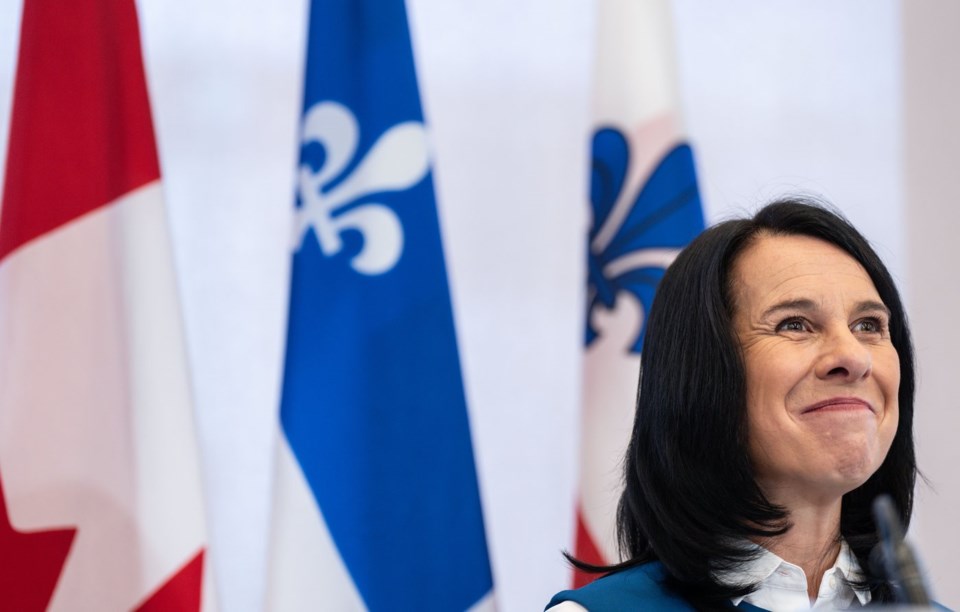MONTREAL — The City of Montreal is promising to speed up construction permits, raise taxes on owners of vacant lots and spend tens of millions more dollars to help develop affordable housing as part of its 2025 budget.
The $7.28-billion budget unveiled Wednesday by Mayor Valérie Plante includes a promise to increase the city's housing department budget by $100 million over the next three years as its moves to build more subsidized housing.
The city also plans to add more building inspectors, increase aid to tenants rights organizations and continue to buy up rooming houses that offer low-cost housing. As of Jan. 1, the city will set a maximum of 120 days to issue a building permit.
Plante told a news conference that the budget is "historic" in terms of spending committed to housing. The city's goal is to have 20 per cent of the city's housing stock be social or affordable by 2025, she said.
"We have to go further because our goal remains the same, meaning to have many more non-market homes," she said.
According to budget documents, total housing spending is going up by nearly $46 million in 2025. That includes $33 million for housing development, $6.5 million for social housing projects, and $6 million to renovate low-income housing. There is also $566 million earmarked in the capital works budget for acquiring land and buildings for the purposes of housing over the next decade.
Montreal's budget includes more than $3 million more for fighting homelessness, bringing the total budget to nearly $10 million. The city and its partners have announced a plan to build 60 modular housing units with supportive services in 2025, and 300 units for those who are homeless or at risk of homelessness by 2027.
The biggest spending items in the budget are public security, at 18 per cent, servicing debt at 16.3 per cent, and general administration at 11.2 per cent.
The spending will be financed in part by property tax increases that will average 2.2 per cent for residential buildings and 1.9 per cent for non-residential — which is less than the 4.9 per cent residential raise from the previous year.
The administration also promised to limit hiring and review spending across the board in order to find $200 million in annual cost savings in the next few years.
Plante said one of the measures she's most proud of is one that will eliminate a fee that non-profits pay in lieu of property taxes, which she says amounts to $10.5 million in savings per year for 700 organizations, including theatres, sports organizations and community organizations.
"For us, it's a measure that is important because it can be applied quickly, there's no paperwork, it gets done," she said.
The Chamber of Commerce of Metropolitan Montreal praised the city for limiting tax hikes and for choosing to invest in arts and culture, but expressed concern over rising spending.
"Looking at the trend since 2018, the city's expenses have increased by 33 per cent, or nearly $2 billion," chamber president Michel Leblanc wrote in a statement. "This growth in spending is worrying." The group said the budget represents a four per cent spending increase, "so twice as high as inflation."
Opposition party Ensemble Montréal accused the Plante administration of financial mismanagement since it was elected in 2017, saying her Projet Montréal party has raised taxes and hired thousands more employees while allowing services and infrastructure to deteriorate.
Ensemble Montréal complained of garbage-strewn streets, unsafe sidewalks, growing insecurity and crumbling infrastructure. "Montreal taxpayers have every reason to ask: Where are their tax dollars really going?" the party wrote in a news release. It also said the administration hadn't invested enough in the fight against homelessness.
This report by The 91Ô´´ Press was first published Nov. 20, 2024.
Morgan Lowrie, The 91Ô´´ Press



